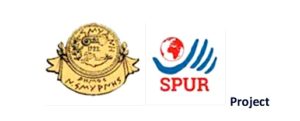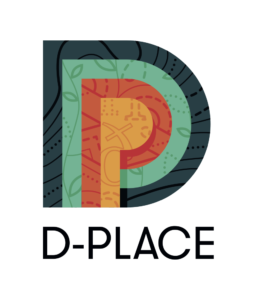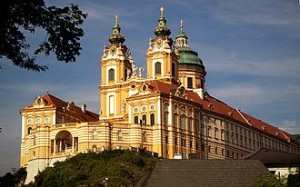Can Economics Value Human Survival? ~ An Interview With Graciela Chichilnisky
 Climate change threatens human survival and the existing economic arrangements and values are directly responsible for this sad state of affairs, argues Graciela Chichilnisky, author of the Kyoto Protocol Carbon Market and a world authority on climate change, in the interview that follows. Moreover, Professor Chichilnisky thinks that a new global economy based on “green capitalism” is not only possible but absolutely essential for the future of the planet. Graciela Chichilnisky is Professor of Economics and of Statistics at Columbia University, Visiting Professor of Economics at Stanford, and co-founder and CEO of Global Thermostat.
Climate change threatens human survival and the existing economic arrangements and values are directly responsible for this sad state of affairs, argues Graciela Chichilnisky, author of the Kyoto Protocol Carbon Market and a world authority on climate change, in the interview that follows. Moreover, Professor Chichilnisky thinks that a new global economy based on “green capitalism” is not only possible but absolutely essential for the future of the planet. Graciela Chichilnisky is Professor of Economics and of Statistics at Columbia University, Visiting Professor of Economics at Stanford, and co-founder and CEO of Global Thermostat.
Marcus Rolle: Professor Chichilnisky, can you discuss what might be some of the long-term effects of climate change on global economic activity?
Graciela Chichilnisky: The effects of climate change on global economic activity are profound and widespread and can be counted in the trillions of dollars, including losses of property from flooding, droughts and fires and other catastrophic events such as typhoons and tornadoes that have become more intense, more frequent and more volatile due to a warmer atmosphere and hydrosphere, which contain more energy. Think of New York City with three Sandy Superstorms per year. Firms and schools will be closed for most of the year, the police will be out of action, there will be no electricity, cars will be floating in the streets, etc. In sum, New York will not be a working city. The effects are incalculable. But the problem is larger than the dollar value of storms and floods and weather events because of the hundreds of millions or billions of lives that are either ruined or lost and the incalculable damage done to our political and social institutions and structures that make up the fabric of human civilization.
MR: There are several studies indicating that global warming impacts adversely on productivity and impacts negatively on global GNP per capita. Aren’t we throwing money around by not addressing global warming?
GC: Climate change will have indeed serious adverse effects on the economy and, in a recent OECD study, the value of losses of property in the world’s leading cities alone are in the trillions of dollars, including those in Miami Florida and Shanghai China. So, in this sense, we are definitely throwing money around. In reality, however, the whole concept of GDP and of economic value that we use today is suspect and many expect it to change sometime soon. I do.
MR: Developing countries are most likely to absorb much of the losses caused by climate change. If so, how will this development impact on migration flows to developed countries?
GC: I believe that among the first and worst effects of climate change that we will witness will be massive migration movements of tens or even up to hundreds of millions of people from poor nations badly affected by climate change into rich nations and, subsequently, the manifestation of extremist political processes in the latter nations as a result of these migration waves. Indeed, the process has already started, and, the war in Syria, which caused the massive migration of over 1million people into Europe, came in the aftermath of an unprecedented in terms of severity four-year drought that left millions desperate, with no jobs, food, or hope, forcing them in turn to flee for their lives. These unprecedented migration waves of refugees have already led, as I predicted in an earlier article, to political extremism both in Europe and the United States. Brexit is perhaps the most direct and explicit consequence of these developments, but there are others as well. We are witnessing the direct political consequences of radical extremism on the political stage in Europe and the United States right now. Climate change means that this pattern will continue and amplify and it can easily lead to the destruction of Western democratic values and of our most important governance institutions. This, in my view, is one of the most immediate, direct, dangerous and destructive effect of climate change as our entire social fabric and institutions, the very foundations of human societies as we know them, are at risk. All this can happen — and is in fact already happening very quickly –, and it can be, and probably will be, devastating to human societies. Humans will not disappear and become extinct without violence and conflicts and wars can be expected. Of course, most people have trouble imagining how this will develop as the physical survival of some human groups is still likely, but not when it comes to human civilization itself if the trend continues and prevails. Think of the follow-up effect of the massive asteroid that is believed to have hit Mexico about 60 million years ago and to have led to the disappearance of the dinosaurs, which were a globally dominant species at the time as we are now. Massive dust clouds stopped sun rays and the earths’ main source of energy. Millions perished. It is generally thought that the dinosaurs who could fly and overcame the lethal dust created by the impact of the asteroid are now still around and can be seen as birds, for example chickens. Will humans become the chickens of the future? Possibly. Read more
God wil het! Reizen in het spoor van de kruisvaarders
De historische importantie van de Kruistochten die tussen de 11e en de 15e eeuw plaats vonden in Europa en het Midden-Oosten wordt in het huidige tijdperk doorgaans door Westerse historici en politici onderschat.
Lejo Siepe en Robert Mulder volgden enkele jaren geleden het spoor van de eerste Kruistocht en ontdekten dat met name in de Arabische wereld de herinneringen aan de Kruistochten nog altijd levendig zijn. In de hoofden van veel moslims is deze historische gebeurtenis actueler dan ooit. De islamitische wereld voelt zich bedreigd door het Westen. Het Westen voelt zich bedreigd door de islamitische wereld. Een geschiedenis herhaalt zich. Heden ten dage worden in zowel de christelijke stromingen als in de islam de geloofsstellingen weer betrokken, gebaseerd op oude mythen, sagen en legendes. Hebben de Kruistochten in dit verband meer dan een symbolische betekenis?
In dit reisverslag langs de route van de eerste Kruistocht hebben Lejo Siepe en Robert Mulder geprobeerd antwoord te vinden op de vraag of er sprake is van een nieuw vijandsbeeld gebaseerd op oude vooroordelen. De auteurs spraken in Europa en in het Midden Oosten met vooraanstaande historici, schrijvers, filosofen en geestelijken (onder andere Amos Oz, Amin Maalouf, Sadik Al Azm, Benjamin Kedar, Halil Berktay) over de actuele invloed van de Kruistochten op onze moderne geschiedenis en de onverminderd voortdurende godsdienstige conflicten tussen moslims, joden en christenen.
Inhoudsopgave
Hoofdstuk Een – Reizen in het spoor der kruisvaarders – Inleiding
Hoofdstuk Twee – Duitsland: de vijanden van God
Hoofdstuk Drie – Hongarije: de koning der boeken
Hoofdstuk Vier – De Balkan: een eeuwig strijdtoneel
Hoofdstuk Vijf – Bulgarije
Hoofdstuk Zes – Constantinopel: in het kamp van de vijand
Hoofdstuk Zeven – Nicaea en Dorylaeum: Sterf dan honden!
Hoofdstuk Acht – Cappadocië: De vlakte des doods
Hoofdstuk Negen – Antiochië: het verraad van het harnasmasker
Hoofdstuk Tien – Antiochië: een teken van God
Hoofdstuk Elf – Syrie: twee grote leiders voor een geweldig volk
Hoofdstuk Twaalf – Libanon: het land van ruines
Hoofdstuk Dertien – Israel: het land van belofte
Hoofdstuk Veertien – Jeruzalem: God wil het!
Native Politics in Broadcast Media and Film | Native Peoples, Native Politics || Radcliffe Institute
The Greek Program “SPUR” ~ Towards A New Spur For EU Democracy Building Learn And Engagement
 The Greek PROGRAM “SPUR” – Towards a New Spur for EU Democracy Building learn and engagement
The Greek PROGRAM “SPUR” – Towards a New Spur for EU Democracy Building learn and engagement
The project is an initiative of Nea Smyrni municipality, a municipality located about 4 km southwest of central Athens, Greece, named so after the city Smyrna (today’s İzmir in Turkey), from where a large number of refugees arrived and settled in the Nea Smyrni area following the 1922 population exchange between Greece and Turkey.
The municipality implements this project with the support of the “Europe for Citizens” programme of the European Union.
The main goal of “SPUR” program is to highlight and assess both the value of solidarity and volunteering in the current context of economic and humanitarian crisis inside United Europe as well as to improve the conditions for civic and democratic participation of citizens providing them, as a New Spur, New forms of Societal and intercultural engagement for the enhancement of civic and democratic participation at national and European level.
These forms, away from extremist or populist movements and radicalized behaviors and beyond xenophobia, intolerance and any discrimination against the vulnerable or excluded people within EU societies and underprivileged and disadvantaged populations, which often include youngsters and people of non – EU origins:
a) Stabilize the social welfare, health, employment, education, environment, culture, etc.systems, which brutally affected in times of economic recession and poverty
b) Protect further the fundamental rights, in particular of minorities,
c) Help restore law and civil parity for a decent living,
d) Promote and foster the economy and the development and finally,
e) Consolidate the faith, to the principles and values on which the European ideal is founded, in particular of the different types of Eurosceptics, and to put forward the achievements of the United Europe and the cost of no Europe creating a new positive narrative for Europe and Europe integration.
For more information: Vanessa Kavvada ~ vannyiason
Go to: dnnspur.gr
D-PLACE –The Database Of Places, Language, Culture And Environment
 From the foods we eat, to who we can marry, to the types of games we teach our children, the diversity of cultural practices in the world is astounding. Yet, our ability to visualize and understand this diversity is often limited by the ways it traditionally has been documented and shared: on a culture-by-culture basis, in locally-told stories or difficult-to-access books and articles.
From the foods we eat, to who we can marry, to the types of games we teach our children, the diversity of cultural practices in the world is astounding. Yet, our ability to visualize and understand this diversity is often limited by the ways it traditionally has been documented and shared: on a culture-by-culture basis, in locally-told stories or difficult-to-access books and articles.
D-PLACE, which stands for ‘Database of Places, Language, Culture, and Environment,’ represents an attempt to bring together this dispersed corpus of information. It aims to make it easy for individuals to contrast their own cultural practices with those of other societies, and to consider the factors that may underlie cultural similarities and differences.
So far, D-PLACE contains cultural, linguistic, environmental and geographic information for over 1400 human ‘societies’. A ‘society’ in D-PLACE represents a group of people in a particular locality, who often share a language and cultural identity. All cultural descriptions are tagged with the date to which they refer and with the ethnographic sources that provided the descriptions. The majority of the cultural descriptions in D-PLACE are based on ethnographic work carried out in the 19th and early-20th centuries (pre-1950).
In linking societies to a geographic location (using a reported latitude and longitude) and language, D-PLACE allows interested users to simultaneously consider how cultural practices relate to linguistic ancestry, practices of neighbouring cultures, and the environment. D-PLACE makes visualizing these relationships easy, with search results available as a table, on a map, or on a linguistic tree.
While D-PLACE is designed to be expandable, most of the initial cultural data in D-PLACE were originally compiled by two anthropologists, George P. Murdock and Lewis R. Binford, each relying on hundreds of individual references. Murdock and Binford’s core datasets are described in more detail in the Data Source section.
The D-PLACE team is made up of scientists with a broad range of interests who share a passion for interdisciplinary inquiry.
More information on: citing D-PLACE, related publications, and the technology and source code.
D-PLACE is a work in progress. We welcome suggestions for corrections and/or for additional data.
Funding
D-PLACE was developed with generous support from the National Evolutionary Synthesis Center (www.nescent.org) and the Max Planck Institute for the Science of Human History (www.shh.mpg.de/en)
Punishment And Purpose ~ From Moral Theory To Punishment In Action
Contents
List of tables and figures
Foreword – John Braithwaite
2. The theoretical debate
– 2.1 Introduction
– 2.2 The need for philosophies and theories of punishment
– 2.3 Categorisation of philosophical theories
– 2.4 Retributivism
– 2.4.1 Negative and positive retributivism
– 2.4.2 The intuitionist approach
– 2.4.3 Restoring a balance
– 2.5 Utilitarianism
– 2.5.1 Bentham and Beccaria
– 2.5.2 Individual or general prevention? Muller’s utilitarianism pur sang
– 2.6 Mixed theories
– 2.7 Restorative Justice




